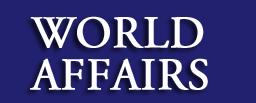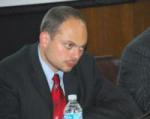19 September 2012
Vladimir Kara Murza “We should thank this regime—without it, such different political forces would never have come together,” declared poet Dmitri Bykov as he addressed an estimated 50,000 protesters in downtown Moscow. “We should thank them for the fact that our country now has a civil society.” Like all opposition rallies since December, last Saturday’s protest brought together people of all political persuasions—liberals and socialists, nationalists and antifascists, ecologists and conservatives—united in a common rejection of the corruption, authoritarianism, and lawlessness of Vladimir Putin’s regime. As before, protesters were mostly young (according to a Levada Center survey, 71 percent were under the age of 44), mostly university-educated (53 percent), and mostly financially comfortable (61 percent). As before, democrats and liberals were the dominant force (52 percent), but the protesters also included left-wingers (34 percent) and nationalists (12 percent).
There was, however, a first: on September 15th, the various wings of the Russian opposition have agreed not only on their political goals (Putin’s resignation, the release of political prisoners, early parliamentary and presidential elections, constitutional reforms strengthening Parliament at the expense of the presidency), but also on social demands: cut spending on government bureaucracy and law enforcement agencies while raising the budget for education and healthcare; safeguard the right to strike and freedom for trade unions; freeze utility prices raised by local monopolies. These appeals have been addressed to a post-Putin transitional government: the rally’s resolution emphasizes that the protesters “only demand one thing from the [current] illegitimate authorities: resignation.”
Opposition leaders expect that the socioeconomic dimension to the protests will expand them beyond the urban middle class and make the pressure unbearable for the Kremlin. “Our goal is clear: we must peacefully, nonviolently, and calmly send them packing,” stressed Republican Party co-chairman and former Deputy Prime Minister Boris Nemtsov. “To do this, we will need not ten thousand or one hundred thousand, but one million people on the streets.” “We must go to rallies just like we go to work,” echoed anticorruption blogger Alexei Navalny. “No one will help us … and depose Putin while we sit at home and eat jam. No one will liberate us except for ourselves.”
There is nothing Vladimir Putin would like more than for the protests to turn violent so that he can attempt to crush them by force. The opposition will not give him that luxury: the same Levada Center survey showed that only 14 percent of rally-goers support “radical protest actions that aim to overthrow the regime.” In the best traditions of the “color revolutions,” the most popular options—with 34 percent each—are “continuing with peaceful rallies” and “participating in elections” (the next electoral test for Russia’s opposition comes with the local polls on October 14th). “We will have free elections when we bring out … one million people,” predicted Nemtsov. “On that day we will discover, to our surprise, that the police supports the people, that … officials are asking to speak from the platform to denounce the criminal regime, and that all who remain with Putin are his personal cronies and his faithful friend [Chechen President] Ramzan Kadyrov.”
* Vladimir Kara-Murza's blog


